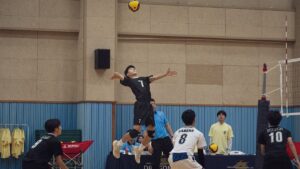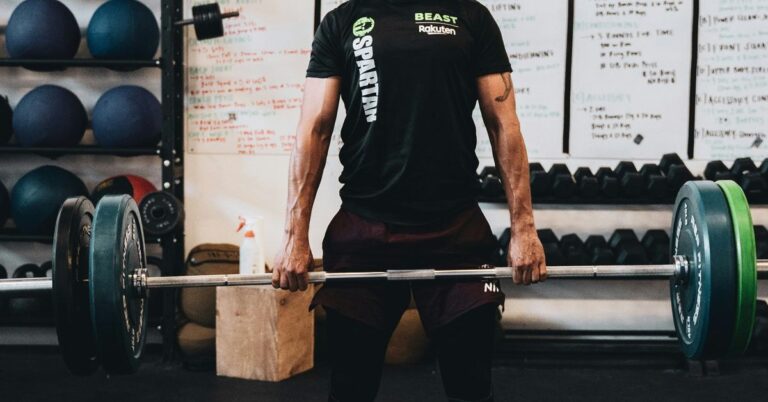The Hidden Connection Between Mental Toughness and Athletic Success
In the world of sports, where the margins between victory and defeat can be razor-thin, one might wonder what truly separates the champions from the also-rans. Is it sheer talent? Perhaps a rigorous training regimen? While these factors are undeniably important, there’s a less tangible quality that often goes unnoticed: mental toughness. This elusive attribute is frequently the unsung hero behind athletic success, a secret weapon that can make or break an athlete’s career.
Think about it for a moment. How many times have we witnessed a seemingly unbeatable athlete falter under pressure? Conversely, how many underdogs have risen to the occasion, defying the odds with sheer willpower and determination? It struck me that mental resilience is a crucial ingredient in the recipe for success, and it deserves a closer examination.
Defining Mental Toughness
Mental toughness can be somewhat nebulous. It’s not something you can measure with a stopwatch or weigh on a scale. Various experts define it in different ways, yet common elements emerge. Typically, mental toughness involves attributes such as:
- Confidence: The belief in one’s abilities.
- Resilience: The capacity to recover quickly from setbacks.
- Focus: The ability to concentrate on goals, ignoring distractions.
- Motivation: An inner drive that pushes athletes to excel.
- Emotional regulation: The skill to manage emotions, especially under pressure.
One might say that mental toughness is like the invisible thread that weaves through an athlete’s journey, influencing their performance in ways that aren’t always obvious. So, what’s the science behind it?
The Psychological Backbone of Athletic Performance
Research consistently shows that mental toughness can significantly impact performance. A study published in the Journal of Sport Psychology suggests that athletes with higher levels of mental toughness tend to perform better under pressure compared to their less mentally resilient counterparts. This seems to suggest that it’s not just about physical training; the mind plays a pivotal role in an athlete’s overall success.
Consider the famous case of tennis star Serena Williams. Her journey through the ranks of professional tennis has been marked by extraordinary talent, but it’s her mental fortitude that often shines brightest. Williams has spoken about the importance of mental preparation, stating, “I always believed I could win. The mind is a powerful thing.” Her ability to maintain focus during high-stakes matches has led her to numerous Grand Slam titles, reinforcing the notion that mental toughness is just as critical as physical prowess.
Anecdotes of Triumph and Tribulation
Throughout sports history, tales of mental toughness abound. Take the story of Michael Jordan, often revered as the greatest basketball player of all time. Jordan famously was cut from his high school basketball team—a moment that could have crushed many aspiring athletes. Instead, he channeled that disappointment into fuel for his fire. He once remarked, “I’ve missed more than 9,000 shots in my career. I’ve lost almost 300 games. Twenty-six times, I’ve been trusted to take the game-winning shot and missed. I’ve failed over and over and over again in my life. And that is why I’ve succeeded.”
Here, Jordan underscores the essence of mental toughness: perseverance in the face of failure. It’s not just about how many times you fall but how many times you rise afterward. His relentless pursuit of greatness is a testament to the power of a resilient mindset.
The Role of Coaches and Mentors
Coaches play a pivotal role in cultivating mental toughness in athletes. It’s often said that a great coach doesn’t just focus on physical training but also nurtures the mind. From legendary figures like Phil Jackson, who guided the Chicago Bulls and the Los Angeles Lakers to multiple championships, to more contemporary coaches, the ability to instill mental resilience can define a team’s success.
Jackson frequently employed techniques such as mindfulness and visualization, encouraging his players to develop mental clarity and focus. His famous use of the “Zen Master” approach wasn’t just about winning games; it was about building a mentally tough team that could withstand the pressures of competition. His methods remind us that mental toughness can indeed be cultivated, developed through practice, and intentional training.
Building Mental Toughness: Strategies and Techniques
So, how can athletes build their mental toughness? While there’s no one-size-fits-all answer, several strategies can help foster this essential quality:
- Goal Setting: Setting clear, achievable goals provides a roadmap for success and helps maintain focus.
- Visualization: Imagining success prepares the mind for real-life situations and enhances confidence.
- Positive Self-Talk: Replacing negative thoughts with affirmations can boost self-belief.
- Mindfulness Meditation: Practicing mindfulness can improve emotional regulation and reduce anxiety.
- Embracing Failure: Viewing setbacks as opportunities for growth fosters resilience.
Developing mental toughness is a lifelong journey. Athletes need to be persistent, just like in their physical training. After all, nobody expects to run a marathon without putting in the miles, right? (Trust me, I tried once and learned that lesson the hard way.)
The Balance Between Mental and Physical Training
It’s essential to understand that mental toughness doesn’t exist in a vacuum; it complements physical training. The two must go hand-in-hand to achieve peak performance. In sports, where physical demands are high, the mind often dictates how well an athlete can perform. During intense competitions, fatigue can set in, and it’s the mind that pushes the body to endure. A well-rounded training regimen should include both physical and mental components.
Some studies suggest that the most successful athletes are those who integrate mental training into their routines, creating a holistic approach to sport. This could mean working with sports psychologists or engaging in regular mental exercises, much like they would with strength training or endurance workouts.
Real-World Applications: From the Field to Everyday Life
The benefits of mental toughness extend beyond the sports arena. Many of the principles that athletes apply can be utilized in everyday life. Whether it’s tackling a professional challenge, managing personal relationships, or simply navigating the ups and downs of daily existence, mental toughness is invaluable. After all, who hasn’t faced their own “game-winning shot” moment in life?
Consider the story of a young entrepreneur launching a startup. They face countless rejections, long nights, and moments of self-doubt. However, those who cultivate mental resilience can turn these challenges into opportunities for growth. Much like an athlete preparing for a championship, they learn to manage stress, maintain focus, and push through adversity.
Overcoming Adversity: The Power of Mental Resilience
Adversity, it seems, is a universal constant in both sports and life. The ability to bounce back from failure is not just desirable; it’s essential. Take the case of Olympic swimmer Michael Phelps. After a spectacular career filled with accolades, Phelps faced personal struggles that threatened to derail his life. Yet, through therapy, self-reflection, and sheer determination, he managed to reclaim his mental health and return to the pool, ultimately competing in the Olympics again. His story serves as a powerful reminder that mental toughness can be a lifeline during the toughest times.
It’s also worth noting that mental toughness doesn’t mean being impervious to emotions. Rather, it’s about acknowledging those feelings, understanding them, and ultimately using them as a source of strength. Athletes are human, after all, and the emotional rollercoaster of competition can be tumultuous. Learning to ride those waves is part of the journey.
The Future of Mental Toughness in Sports
As we look toward the future, the emphasis on mental toughness in sports is likely to intensify. With advancements in sports psychology and a growing understanding of the mind-body connection, athletes are increasingly recognizing the value of mental training. Organizations are beginning to incorporate mental wellness programs, and this focus can lead to a more well-rounded approach to athlete development.
Moreover, with the rise of technology, mental fitness apps and online resources are becoming more accessible, allowing athletes to train their minds just as rigorously as they train their bodies. Imagine being able to pull up a mental toughness app and practice visualization techniques or mindfulness exercises before a big game—sounds pretty enticing, doesn’t it?
Final Thoughts: The Invisible Edge
In conclusion, the hidden connection between mental toughness and athletic success is undeniable. While physical attributes may get the spotlight, it’s often the mental game that truly defines an athlete’s journey. As both fans and practitioners of sports, we should celebrate not only the physical prowess of athletes but also their mental resilience—their ability to rise from the ashes of failure, to focus under pressure, and to maintain a relentless pursuit of excellence.
So, the next time you’re watching a nail-biting finish or a dramatic comeback, take a moment to appreciate the mental toughness at play. It’s the unsung hero, quietly fueling the triumphs and tribulations of athletes across the globe. And let’s be honest, who among us couldn’t use a little extra mental strength now and then? (I know I could!)













